
Become a Group and Gym Fitness Instructor
Become a Nationally Recognised Personal Trainer

SIS30321 Certificate III in Fitness (Online)
Offer Ends 30th of September
$33/wk for 32 weeks + $250 Upfront payment

Are you Ready to Become a Nationally Recognised Group Fitness Trainer?
Complete the course to become a GROUP GYM INSTRUCTOR with our course SIS30321 Certificate III in Fitness. Check the Course Overview Below:
SIS30321 Certificate III in Fitness
This qualification reflects the role of group and gym fitness instructors. These fitness instructors may plan and deliver group exercise sessions and develop gym-based programs for individuals where the level of personalised instruction and ongoing client monitoring is limited. They work in predictable environments under general supervision. When instructing groups or interacting with clients, they use discretion and judgment to solve routine issues within the parameters of clearly defined organisational policies and procedures.
Was $1,498, Now $850
$33/wk for 32 weeks + $250 Upfront payment

Are you Ready to Become a
Nationally Recognised Group Fitness Trainer

100% ONLINE
Study on your schedule, wherever you are! Balance learning with work, family, and life. You must also have access to a gym.

UNLIMITED STUDENT SUPPORT
Available via call, email, Zoom, and text! Guaranteed same-day or next-business-day response.

2 WEEKS MONEY-BACK GUARANTEED
Enjoy peace of mind with our 2-week money-back guarantee!

PAYMENT PLAN AVAILABLE
Payment plan is available to suit your budget!

LOWEST PRICE GUARANTEED
Get the lowest rates without compromising on quality.
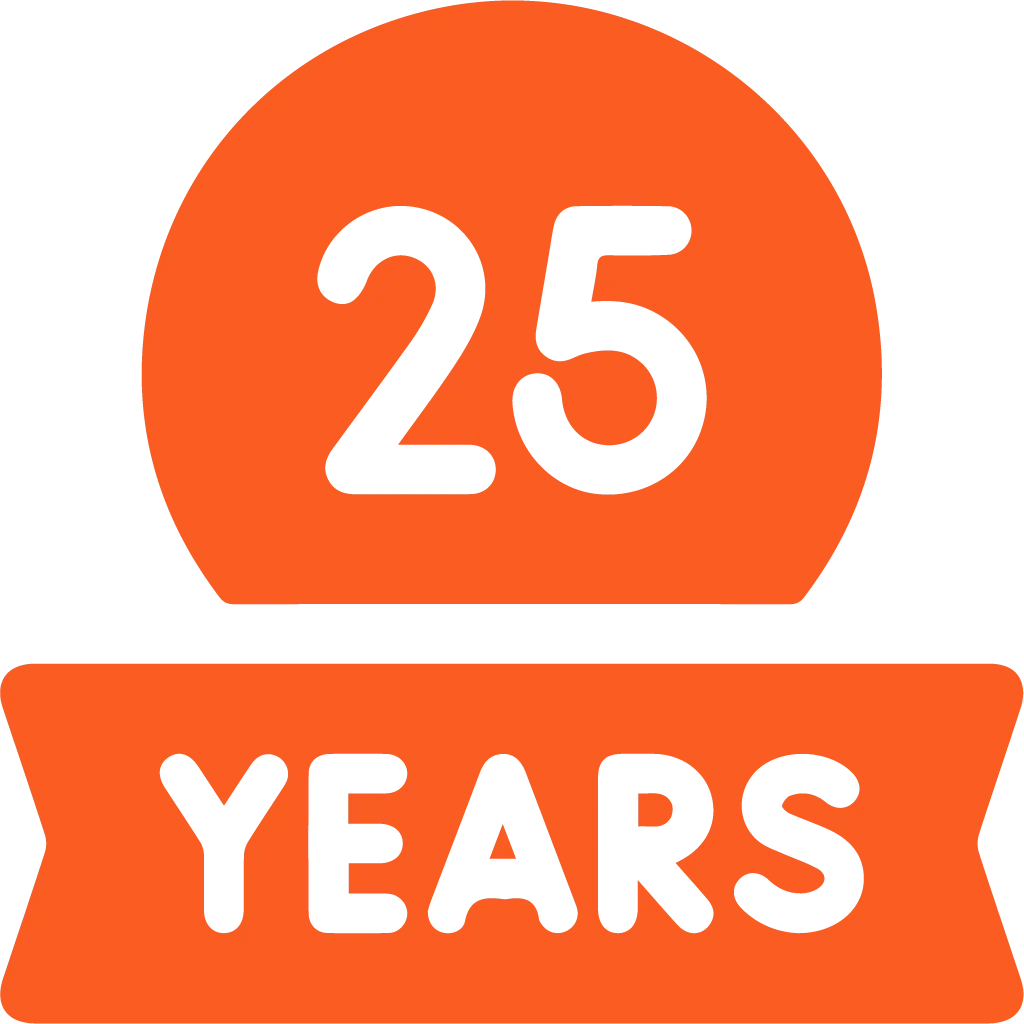
25 YEARS EXPERIENCE
Expertise you can rely on.

INTERACTIVE
Learn your professional fitness trade in a real-life & simulated environment.
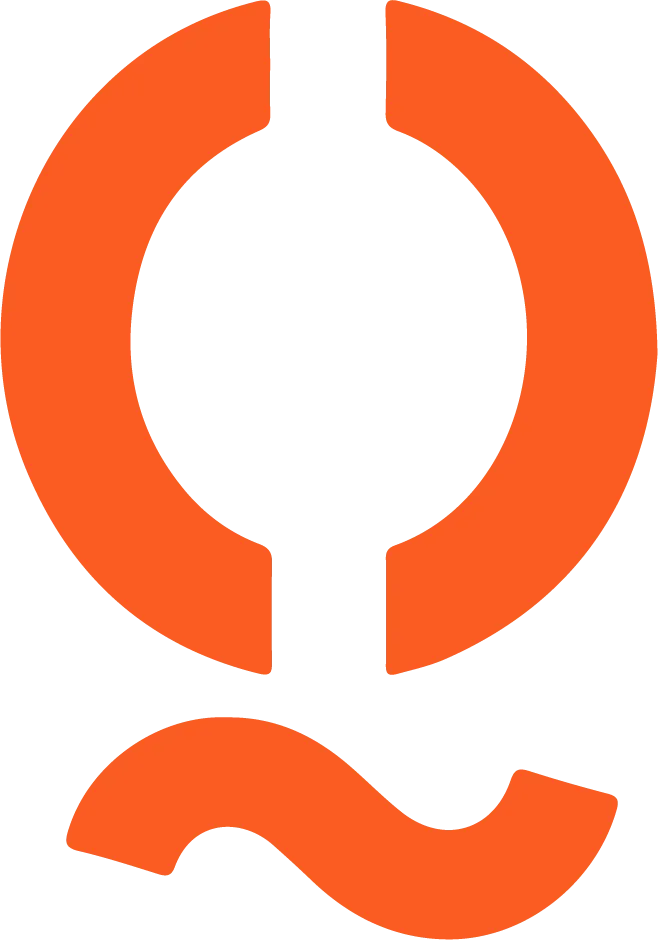
NATIONALLY ACCREDITED
We are a government accredited registered training organisation.
RTO No 91205.
Where could a career in fitness take you?
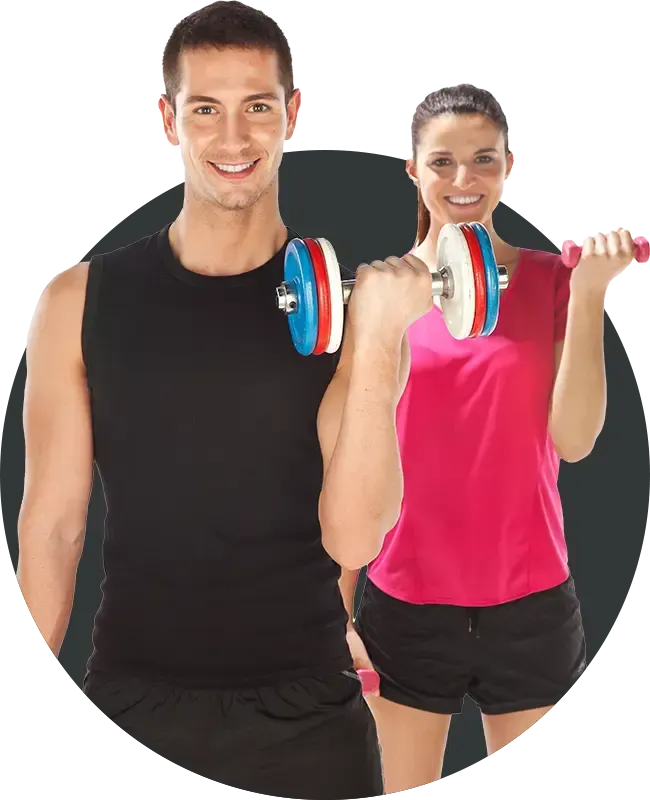
GYM INSTRUCTOR/GROUP FITNESS
Gain experience in diverse fitness settings, from private studios to large gyms.
Oversee and manage activities on the gym floor.
Design tailored exercise programs for clients.
Lead and instruct group fitness classes.
Enhance career prospects and boost earning potential.
Enjoy flexible work hours across various locations while maximising your income.
Our Trainers & Assessors

Mark McGaw, former professional footballer and Gladiator, transitioned into fitness in 1995 by completing Australia’s only Fitness Trainer course. Inspired by a trip to the USA, where he attended the Arnold Schwarzenegger Bodybuilding Show and met the marketing director of a major fitness education provider, he introduced distance learning to Australia. He secured the rights to a course developed by Dr. Fred Hatfield, a record-breaking powerlifter and mentor.
With a passion for educating others using the latest research, McGaw has spent over 25 years training individuals in fitness. His football career included playing for the Cronulla-Sutherland Sharks, Penrith Panthers, and South Sydney Rabbitohs. He also represented New South Wales in multiple State of Origin series and played for Australia in the 1988 Rugby League World Cup Final.
McGaw gained further recognition as "Hammer" on Gladiators (1995–1996) and modeled for Lowes Menswear alongside other rugby league stars. He is the founder of the Mark McGaw Institute of Sports Science
Who is Mark McGaw?
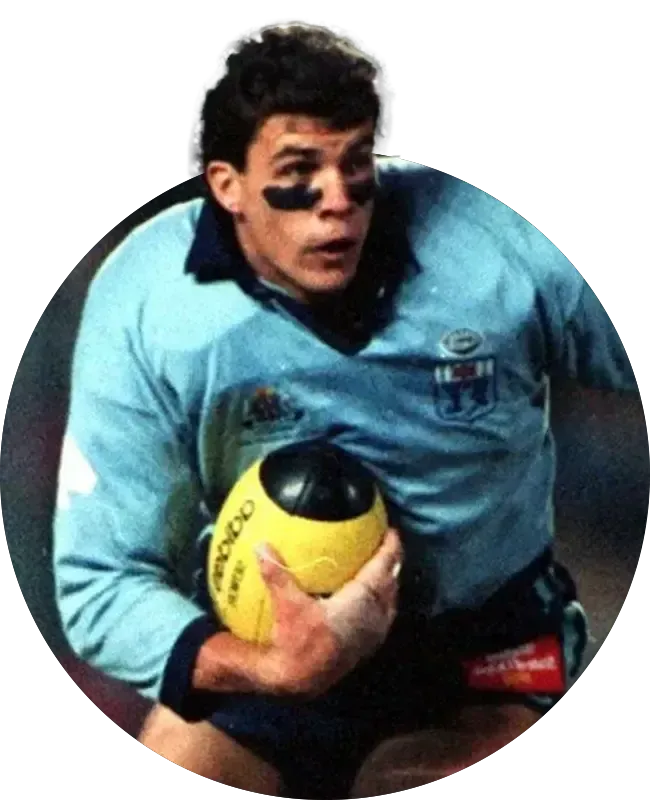
NRL Career
Cronulla, New South Wales, McGaw’s journey in rugby league began with the Cronulla-Sutherland Sharks, a team with which he became synonymous. His debut in 1983 marked the start of an illustrious career that saw him become one of the most celebrated centres of his time. His playing style was characterized by a blend of speed, agility, and strength, making him a formidable opponent on the field.
Gladiators 2024 Channel 10
Nearly 30 years ago, back in 1995, Mark first graced our screens as Hammer, one of the original Gladiators. Fast forward to today, and he’s back in the arena, but with a twist – he’s the show’s new referee, keeping a keen eye on the rules. Mark, with a friendly yet firm approach, shares his wisdom with the contestants: “Remember to balance your dreams with what you’re truly capable of – and that’s a tip straight from an OG [Original Gladiator]!”
Don’t miss the excitement as the legendary Mark, our original Gladiator, steps into the arena once more in the new 2024 Gladiators show! Tune in from January 15th Channel 10 to catch all the action, drama, and heart-pumping challenges, with Mark at the helm as the dynamic referee.
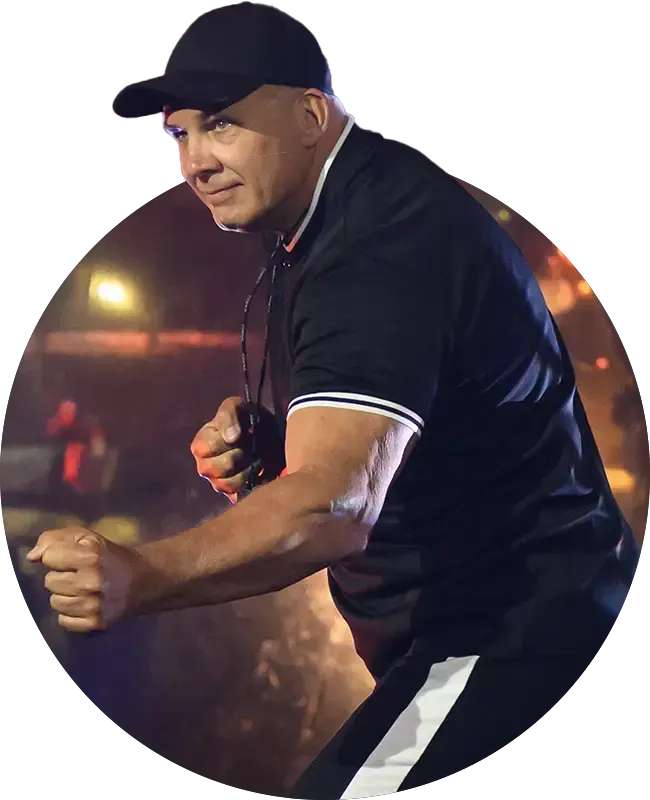
Payment Plans Available
Flexible payment plans are available to suit your budget!
$33/wk for 32 weeks + $250 Upfront payment

The Mark McGaw Difference
Core Units | SIS30321 Certificate III in Fitness
BSBOPS304 Deliver and monitor a service to customers
This unit describes the skills and knowledge required to identify customer needs, deliver and monitor customer service and identify improvements in the provision of customer service.
The unit applies to those who apply a broad range of competencies in various work contexts. In this role, individuals often exercise discretion and judgement using appropriate knowledge of customer service. They provide technical advice and support to customers over short or long-term interactions.
No licensing, legislative or certification requirements apply to this unit at the time of publication.
BSBPEF301 Organise personal work priorities
This unit describes the skills and knowledge required to organise personal work schedules, to monitor and obtain feedback on work performance and to maintain required levels of competence.
The unit applies to individuals who exercise discretion and judgement and apply a broad range of competencies in various work contexts.
No licensing, legislative, regulatory or certification requirements apply to this unit at the time of publication.
HLTAID011 Provide First Aid
This unit describes the skills and knowledge required to provide a first aid response to a casualty in line with first aid guidelines determined by the Australian Resuscitation Council (ARC) and other Australian national peak clinical bodies.
The unit applies to all persons who may be required to provide a first aid response in a range of situations, including community and workplace settings.
Specific licensing/regulatory requirements relating to this competency, including requirements for refresher training should be obtained from the relevant national/state/territory Work Health and Safety Regulatory Authorities.
HLTWHS001 Participate in workplace health and safety
This unit describes the skills and knowledge required for workers to participate in safe work practices to ensure their own health and safety, and that of others.
The unit applies to all workers who require knowledge of workplace health and safety (WHS) to carry out their own work, either under direct supervision or with some individual responsibility.
The skills in this unit must be applied in accordance with Commonwealth and State/Territory legislation, Australian/New Zealand standards and industry codes of practice.
SISFFIT032 Complete pre-exercise screening and service orientation
This unit describes the performance outcomes, skills and knowledge required to screen clients for participation in exercise programs and to provide general advice about programs and services suitable to clients.
It requires the ability to utilise industry standard pre-exercise screening systems, questionnaires and guidelines to collect and evaluate health information, and to determine suitable levels of exercise intensity for clients. This includes determining risk factors and providing referrals to medical or allied health professionals for guidance.
Screening may occur prior to clients beginning an exercise program, before changes to programs and when their health status changes. Outcomes are used by fitness instructors to plan client programs. Skills for planning are covered in complementary units.
This unit applies to group fitness instructors, gym instructors and personal trainers. It can also apply to other fitness facility staff members who screen clients and provide service information prior to clients participating in exercise activities. They practise in settings such as fitness facilities, gyms, leisure and community centres, client workplaces and homes, and outdoor locations, depending on their job role.
The skills in this unit must be applied in accordance with Commonwealth and State or Territory legislation, Australian standards and industry codes of practice.
No occupational licensing, certification or specific legislative requirements apply to this unit at the time of publication.
SISFFIT033 Complete client fitness assessments
This unit describes the performance outcomes, skills and knowledge required to assess current fitness capabilities of clients using information from industry standard pre-exercise screening as the starting point. It requires the ability to complete assessments using a range of activities and measurements and to document outcomes.
Assessment may occur prior to clients beginning an exercise program, before changes to programs and when their health status changes. Outcomes are used by fitness instructors to plan client programs. Skills for planning are covered in complementary units.
This unit applies to gym instructors and personal trainers, who work unsupervised when interacting with clients using discretion and judgement to provide individually tailored client assessments. They practise in settings such as fitness facilities, gyms, leisure and community centres, client workplaces and homes and outdoor locations, depending on their job role.
The skills in this unit must be applied in accordance with Commonwealth and State or Territory legislation, Australian standards and industry codes of practice.
No occupational licensing, certification or specific legislative requirements apply to this unit at the time of publication.
SISFFIT035 Plan group exercise sessions
This unit describes the performance outcomes, knowledge and skills required to plan group exercise sessions designed for participation by mixed ability groups, or by groups that predominately comprise a particular profile, for example, older people. It requires the ability to account for the participation of individuals from specific population groups and of diverse abilities and allow for modifications that can be made during instruction.
It covers skills for evaluating and improving sessions in response to participant and instructor feedback, noting that sessions might be delivered by self or others. Skills for instructing group exercise sessions are covered in a complementary unit.
Exercise sessions are diverse in nature. They could combine or specifically concentrate on cardiovascular, resistance and flexibility exercises, and be delivered with or without music.
This unit applies to group fitness instructors and personal trainers who use discretion and judgment when planning sessions to meet diverse participant needs. Instructors practise in settings such as fitness facilities, gyms, leisure and community centres, client workplaces and other locations, depending on their role.
The skills in this unit must be applied in accordance with Commonwealth and State or Territory legislation, Australian standards and industry codes of practice.
No occupational licensing, certification or specific legislative requirements apply to this unit at the time of publication.
SISFFIT036 Instruct group exercise sessions
This unit describes the performance outcomes, skills and knowledge required to prepare for and deliver land-based group exercise sessions according to predesigned session plans which may have been developed by self or others.
It requires the ability to use exercise instructional techniques, and cater for different participant needs, in a mixed ability group situation within the confines of session guidelines.
Skills for planning group exercise sessions are covered in a complementary unit.
Exercise sessions are diverse in nature. They could combine or specifically concentrate on cardiovascular, resistance and flexibility exercises, and be delivered with or without music.
This unit applies to group fitness instructors who work unsupervised when instructing groups, using discretion and judgement to solve routine problems and are guided by policies and procedures. It also applies to personal trainers working independently with groups. Instructors practise in settings such as fitness facilities, gyms, leisure and community centres, client workplaces and other locations, depending on their role.
The skills in this unit must be applied in accordance with Commonwealth and State or Territory legislation, Australian standards and industry codes of practice.
No occupational licensing, certification or specific legislative requirements apply to this unit at the time of publication.
SISFFIT040 Develop and instruct gym-based exercise programs for individual clients
This unit describes the performance outcomes, skills and knowledge required to develop tailored gym-based exercise programs for individuals where the level of personalised instruction, ongoing client monitoring and program evaluation is limited. Clients are provided with initial instruction and then largely self-manage their own exercise sessions at the gym, according to the program, without ongoing one-to-one instruction.
It requires the ability to integrate information from pre-exercise screenings, fitness assessments, and any medical guidance that may have been received for particular clients, to design suitable programs.
This unit applies to gym instructors and gym-based personal trainers who work unsupervised when interacting with clients using discretion and judgement and are guided by policies and procedures. They practise in settings such as fitness facilities, gyms, and leisure and community centres.
The skills in this unit must be applied in accordance with Commonwealth and State or Territory legislation, Australian standards and industry codes of practice.
No occupational licensing, certification or specific legislative requirements apply to this unit at the time of publication.
SISFFIT047 Use anatomy and physiology knowledge to support safe and effective exercise
This unit describes the performance outcomes, skills and knowledge required to identify the role of anatomy and physiology knowledge in fitness instruction, and to use that knowledge to develop and instruct safe and effective exercise activities.
Knowledge of anatomy and physiology underpins effective performance in a range of work functions for fitness instruction. This unit has direct links to, and supports, a range of units for planning and instructing group and personalised exercise programs.
This unit applies to group fitness instructors, gym instructors and personal trainers. They practise in settings such as fitness facilities, gyms, leisure and community centres, client workplaces and homes and outdoor locations, depending on their role.
The skills in this unit must be applied in accordance with Commonwealth and State or Territory legislation, Australian standards and industry codes of practice.
No occupational licensing, certification or specific legislative requirements apply to this unit at the time of publication.
SISFFIT052 Provide healthy eating information
This unit describes the performance outcomes, skills and knowledge required to provide general, and not individualised, information about healthy eating to fitness clients. Information is based on the main recommendations of the current Australian national dietary guidelines which aim to promote optimal health and wellbeing for generally healthy people.
The unit requires the ability to recognise situations that are beyond the scope of practice for fitness instructors, and to provide information about the types of medical and allied health professionals with expertise to advise on nutritional needs.
This unit applies to group fitness and gym instructors who practise in settings such as fitness facilities, gyms, and leisure and community centres.
The skills in this unit must be applied in accordance with Commonwealth and State or Territory legislation, Australian standards and industry codes of practice.
No occupational licensing, certification or specific legislative requirements apply to this unit at the time of publication.
Elective Units | SIS30321 Certificate III in Fitness
BSBOPS403 Apply business risk management processes
This unit describes the skills and knowledge required to identify business risks and to apply established risk management processes to a defined area of operations that are within the responsibilities and obligations of the work role.
The unit applies to individuals with a broad knowledge of risk analysis or project management who contribute well developed skills in creating solutions to unpredictable problems through analysis and evaluation of information from a variety of sources.
They may have responsibility to provide guidance or delegate aspects of these tasks to others. Risks applicable to own work responsibilities and area of operation may include projects being undertaken individually or by a team, or operations within a section of the organisation.
No licensing, legislative or certification requirements apply to this unit at the time of publication.
BSBSUS211 Participate in sustainable work practices
This unit describes the skills and knowledge required to measure, support and find opportunities to improve the sustainability of work practices.
The unit applies to individuals, working under supervision or guidance, who are required to follow workplace procedures and instructions. These individuals work in an environmentally sustainable manner within scope of competency, authority and own level of responsibility.
No licensing, legislative or certification requirements apply to this unit at the time of publication.
BSBWHS332X Apply infection prevention and control procedures to own work activities
This unit describes the skills and knowledge required to undertake work activities in compliance with organisational procedures that prevent and control infection. It involves implementing standard and transmission-based precautions, identifying infection hazards, and assessing and responding to infection risks.
The unit applies to all workers required to undertake their activities in compliance with the infection prevention and control procedures in place in their workplace.
The skills in this unit must be applied in accordance with Commonwealth and State/Territory legislation, Australian/New Zealand standards and industry codes of practice.
BSBXTW301 Work in a team
This unit describes the skills and knowledge required for workers to participate in safe work practices to ensure their own health and safety, and that of others.
The unit applies to all workers who require knowledge of workplace health and safety (WHS) to carry out their own work, either under direct supervision or with some individual responsibility.
The skills in this unit must be applied in accordance with Commonwealth and State/Territory legislation, Australian/New Zealand standards and industry codes of practice.
CHCDIV001 Work with diverse people
This unit describes the skills and knowledge required to work respectfully with people from diverse social and cultural groups and situations, including Aboriginal and/or Torres Strait Islander people.
This unit applies to all workers.
The skills in this unit must be applied in accordance with Commonwealth and State/Territory legislation, Australian/New Zealand standards and industry codes of practice.
CHCMHS001 Work with people with mental health issues
This unit describes the skills and knowledge required to establish relationships, clarify needs, and then work collaboratively with people who are living with mental health issues.
This unit applies to support workers in contexts outside the mental health sector, but who come into contact with people with mental health issues. The services and support provided are not mental health specific.
The skills in this unit must be applied in accordance with Commonwealth and State/Territory legislation, Australian/New Zealand standards and industry codes of practice
HLTWHS005 Conduct manual tasks safely
This unit describes the skills and knowledge required to recognise potentially hazardous manual tasks, and then to prepare for and complete those tasks in a safe manner.
This unit applies to all workers involved in manual handling tasks.
The skills in this unit must be applied in accordance with Commonwealth and State/Territory legislation, Australian/New Zealand standards and industry codes of practice. The Hazardous manual tasks code of practice applies to this work.
SIRXSLS001 Sell to the retail customer
This unit describes the performance outcomes, skills and knowledge required to deliver quality customer service and sell to retail customers. It requires the ability to determine customer needs, match products and services to their needs, and facilitate a sale.
This unit applies to all retail sectors and business sizes from large format stores to small independents. It applies to retail personnel at all levels who play a role in engaging with customers with the purpose of selling.
No occupational licensing, certification or specific legislative requirements apply to this unit at the time of publication.
SISCAQU020 Perform water rescues
This unit describes the performance outcomes, skills and knowledge required to complete water rescues in indoor or outdoor, built or natural swimming venues. It requires the ability to assess rescue situations, determine appropriate rescue actions, and use a range of equipment and techniques to provide prompt and effective rescue responses.
This unit applies to any type of sport, fitness, aquatic or recreation organisation including commercial, not-for-profit, community and government organisations.
It applies to any worker who may be required to complete water rescues, including pool lifeguards, swim teachers, aqua exercise instructors, outdoor recreation leaders and others. Rescuers use discretion and judgement to manage problems when they arise, guided by established organisational rescue procedures.
White water and surf rescues are covered in outdoor recreation units coded SISORSC.
The skills in this unit must be applied in accordance with Commonwealth and State or Territory legislation, Australian standards and industry codes of practice.
No occupational licensing, certification or specific legislative requirements apply to this unit at the time of publication.
SISCCRO001 Plan and conduct recreation programs for older persons
This unit describes the performance outcomes, skills and knowledge required to plan, safely conduct, and evaluate recreation programs for older persons, including frail and moderately active participants.
This unit applies to those working in environments such as community recreation centres and indoor or outdoor recreation facilities. Work is performed according to relevant legislation and organisational policies and procedures.
No occupational licensing, certification or specific legislative requirements apply to this unit at the time of publication.
SISFFIT037 Develop and instruct group movement programs for children
This unit describes the performance outcomes, skills and knowledge required to develop movement programs and individual sessions for children aged up to 12 years, and to deliver those programs to groups of children. Programs are those which are designed to promote movement, physical activity and general wellbeing and may consist of multiple sessions. Programs may be developed for general consumer groups or customised to the needs of a particular client organisation, such as a school. They may include the use of basic equipment such as balls, ropes and mats, but do not include instruction involving specialised equipment found in gyms or other fitness facilities.
It requires the ability to evaluate and improve programs in response to feedback and evaluation.
This unit applies to group fitness instructors and personal trainers. They use discretion and judgment to plan programs and work unsupervised when delivering group sessions in settings such as fitness facilities, gyms, leisure and community centres, child care centres, schools and outdoor locations.
The skills in this unit must be applied in accordance with Commonwealth and State or Territory legislation, Australian standards and industry codes of practice.
No occupational licensing, certification or specific legislative requirements apply to this unit at the time of publication. However, individuals must receive formal clearance to work with children through completion of a working with children check required in the relevant State or Territory.
SISFFIT038 Plan group water-based exercise sessions
This unit describes the performance outcomes, skills and knowledge required to plan group water-based exercise sessions designed for participation by mixed ability groups, or by groups that predominately comprise a particular profile, for example, older people. It requires the ability to account for the participation of individuals from specific population groups and of diverse abilities, and allow for modifications that can be made during instruction.
It covers skills for evaluating and improving sessions in response to participant and instructor feedback, noting that sessions might be delivered by self or others. Skills for instructing group water-based exercise sessions are covered in a complementary unit.
Water-based exercise sessions may be conducted in indoor or outdoor pools, with or without equipment. They are most likely to involve music. Sessions could combine or specifically concentrate on cardiovascular, resistance and flexibility exercises. This unit does not apply to the planning of hydrotherapy or rehabilitation sessions.
This unit applies to aqua exercise instructors who use discretion and judgment when planning sessions to meet diverse participant needs. Aqua exercise instructors practise in settings with pools, such as fitness facilities, gyms, and leisure and community centres.
The skills in this unit must be applied in accordance with Commonwealth and State or Territory legislation, Australian standards and industry codes of practice.
No occupational licensing, certification or specific legislative requirements apply to this unit at the time of publication.
SISFFIT039 Instruct group water-based exercise sessions
This unit describes the performance outcomes, skills and knowledge required to prepare for and instruct group water-based exercise sessions according to predesigned session plans which may have been developed by self or others. It requires the ability to use aquatic exercise instructional techniques, and cater for different participant needs in a mixed ability group situation, within the confines of session guidelines.
Skills for planning group water-based exercise sessions are covered in a complementary unit.
Water-based exercise sessions may be conducted in indoor or outdoor pools, with or without equipment. They are most likely to involve music. Sessions could combine or specifically concentrate on cardiovascular, resistance and flexibility exercises. This unit does not apply to the provision of hydrotherapy or rehabilitation sessions.
This unit applies to aqua exercise instructors who work unsupervised when instructing groups, using discretion and judgement to solve routine problems but are guided by venue policies and procedures. Aqua exercise instructors practise in settings with pools, such as fitness facilities, gyms, and leisure and community centres.
The skills in this unit must be applied in accordance with Commonwealth and State or Territory legislation, Australian standards and industry codes of practice.
No occupational licensing, certification or specific legislative requirements apply to this unit at the time of publication.
SISFFIT048 Use anatomy and physiology knowledge to support safe and effective water-based exercise
This unit describes the performance outcomes, skills and knowledge required to identify the role of anatomy and physiology knowledge in aqua fitness instruction, and to use that knowledge to develop and instruct safe and effective water-based exercise activities.
Knowledge of anatomy and physiology underpins effective performance in a range of work functions for water-based exercise instruction. This unit has direct links to, and supports, units for planning and instructing water-based exercise sessions.
This unit applies to aqua exercise instructors; they practise in settings with pools, such as fitness facilities, gyms, leisure and community centres.
The skills in this unit must be applied in accordance with Commonwealth and State or Territory legislation, Australian standards and industry codes of practice.
No occupational licensing, certification or specific legislative requirements apply to this unit at the time of publication.
SISXDIS001 Facilitate inclusion for people with a disability
This unit describes the performance outcomes, skills and knowledge required to identify and facilitate sport, recreation and fitness opportunities for people with a disability.
This unit applies to group leaders in the sport, recreation or fitness industry who work within established organisational policies and procedures. This includes those working in after-school or holiday-care programs, as a coaching assistant, or in support roles in indoor or outdoor recreation activities, such as camps and guided activities.
The skills in this unit must be applied in accordance with public health regulatory requirements, relevant legislation and organisational policies and procedures.
No occupational licensing, certification or specific legislative requirements apply to this unit at the time of publication.
SISXEMR003 Respond to emergency situations
This unit describes the performance outcomes, skills and knowledge required to identify and respond effectively to emergency situations. It requires the ability to maintain participant welfare during emergencies.
This unit applies to any type of sport, fitness, aquatic or recreation organisation including commercial, not-for-profit, community and government organisations. It can be applied to a particular environment or workplace, and to specific types of emergency incidents.
It applies to individuals working in a range of sport, fitness, aquatic or recreation roles at different levels of responsibility. All would be guided by organisational emergency response procedures.
Rescue operations are covered in complementary outdoor recreation units (coded SISORSC) and aquatics units (coded SISCAQU).
The skills in this unit must be applied in accordance with Commonwealth and State or Territory legislation, Australian standards and industry codes of practice.
No occupational licensing, certification or specific legislative requirements apply to this unit at the time of publication.
SISXFAC002 Maintain sport, fitness and recreation facilities
This unit describes the performance outcomes, skills and knowledge required to maintain facilities within a sport, fitness and recreation context.
This unit applies to activity or administration assistants who work under direct supervision in a range of roles and settings in the sport, fitness and recreation industry. This includes providing support in the provision of grounds and facilities maintenance;
routine housekeeping; or administrative assistance in locations such as fitness centres, aquatic centres, or outdoor sporting grounds or complexes. Work is performed according to relevant legislation and organisation policies and procedures.
No occupational licensing, certification or specific legislative requirements apply to this unit at the time of publication.
SISXFAM002 Process financial transactions
This unit describes the performance outcomes, skills and knowledge required to accept and process cash and other payments for products and services, and to reconcile takings.
This unit applies to any type of sport, fitness, aquatic or recreation organisation including commercial, not-for-profit, community and government organisations. It applies to individuals working in a range of sport, fitness, aquatic or recreation roles at different levels of responsibility, but usually to those who work under supervision.
The skills in this unit must be applied in accordance with Commonwealth and State or Territory legislation, Australian standards and industry codes of practice.
No occupational licensing, certification or specific legislative requirements apply to this unit at the time of publication.
SISXIND009 Respond to interpersonal conflict
This unit of competency covers the skills and knowledge required to identify and respond to interpersonal conflict situations in the workplace.
This unit of competency applies to individuals working in a diverse range of industries where they are responsible for dealing with interpersonal conflict. This includes, but is not limited to, coaches and officials working in the Australian sport industry.
No licensing, certification or specific legislative requirements apply to this unit at the time of publication.
SISXIND010 Protect children and young people
This unit describes the performance outcomes, skills and knowledge required to protect the safety of children and young people engaged in community based activities.
This unit applies to individuals working with children and young people in community based roles.
No occupational licensing, certification or specific legislative requirements apply to this unit at the time of publication.
SISXRES002 Educate user groups
This unit describes the performance outcomes, skills and knowledge required to identify and address issues in the use of facilities and activity resources. It requires the ability to develop resources or education for target user groups.
This unit applies to those working as program staff with supervisory responsibilities in a range of locations or with a range of user groups in aquatic programs, sport programs or recreation leisure centres, including gyms. They work autonomously and according to relevant legislation and organisational policies and procedures.
No occupational licensing, certification or specific legislative requirements apply to this unit at the time of publication.
What our Students Say
Package for SIS30321/SIS40221
Certificate III & IV in Fitness is also Available!
Become a Gym & Group Fitness Instructor or a Personal Fitness Trainer & SAVE 49% OFF when you buy both courses!
Was $2,348, Now $1,199
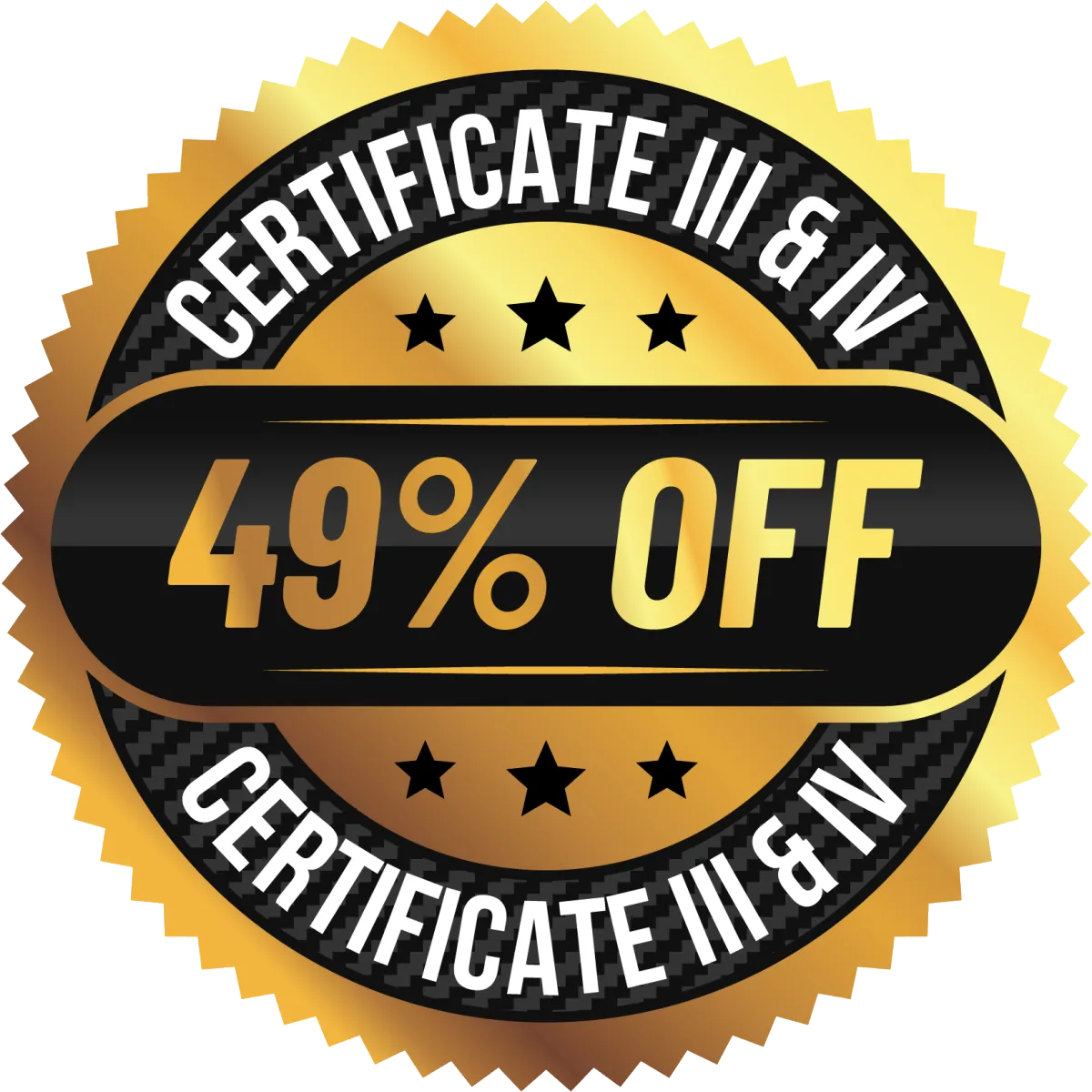
Frequently Asked Questions
How old do I have to be to enrol in SIS30321 - Certificate III in Fitness?
To be eligible for enrolment in our courses, you must be at least 16 years of age.
If you are under 18 years old, a parent or guardian must sign your enrolment form to provide consent for your participation.
Why should I get qualified as a Personal Trainer at the Mark McGaw Institute of Sports Science?
To be the best, train with the best! The Mark McGaw Institute of Sports Science offers 100% online study, flexible payment plans, and unlimited student support, even on holidays, making it easy to fit learning into your schedule. With 25 years of industry expertise, interactive training, and the lowest rates available, you'll receive top-quality education without breaking the bank. Plus, enjoy a 2-week money-back guarantee and the option to study with a partner for added motivation.
What modes of study are available at the Mark McGaw Institute of Sports Science?
It's 100% Online, and you would also learn at your own pace. You have 12 months to complete each course (2 years). You will also need full access to gym equipment.
Are there any payment plans available at the Mark McGaw Institute of Sports Science?
Yes. We offer a payment plan. Please click here.
What are the Educational Requirements?
• You must have successfully completed Year 10 of school or its equivalent.
• Alternatively, if you do not have a Year 10 qualification, you may qualify with a Certificate II qualification or higher, or by demonstrating 2 years of industry experience in a role that requires the use of written documentation and communication skills.
What are the Documentation Requirements?
• Proof of age and educational background will be requested during the enrolment process.
• For applicants under 18, a signed parental or guardian consent form must accompany the enrolment form.
I've Sent my Enrolment Form, What do I do now?
• All enrolments are subject to review based on the provided eligibility documentation.
• If you do not meet the age or educational requirements, your enrolment may not be accepted or processed.
• Your payment will also be refunded.
Can I complete the course quicker than 12 months?
Yes
Here are some of the key reasons why some people complete online courses more quickly than others:
1. Time Management Skills
• Effective Scheduling: People who are good at managing their time can allocate consistent hours to study, avoid procrastination, and stick to a schedule. This results in faster progress.
• Prioritisation: Some individuals prioritise their courses and treat them like a job, ensuring they complete tasks quickly and efficiently.
2. Motivation and Goals
• Strong Motivation: Those who are highly motivated or have clear goals often work more efficiently and complete assignments quicker.
• Clear Milestones: People who set specific, measurable goals and timelines for themselves can stay focused and finish their courses faster.
3. Previous Knowledge and Experience
• Prior Knowledge: If a person has prior knowledge or experience related to the course content, they can move through the material faster because they may already understand key concepts.
• Related Experience: For example, someone with prior experience in the fitness industry may be able to breeze through parts of a fitness course compared to someone who’s new to the subject.
4. Learning Style
• Learning Style Preference: Some people are faster learners based on their preferred learning methods. Visual learners may absorb content more quickly through videos, while auditory learners might excel by listening to lectures. Hands-on learners may thrive in practical aspects and move faster.
• Active Learning: Those who actively engage with the material (through notes, quizzes, discussions, or teaching others) can often retain information better, speeding up their learning process.
5. Self-Discipline and Focus
• Consistent Focus: People with better self-discipline often complete their tasks without being distracted, leading to faster course completion.
• Minimal Distractions: Those who can eliminate distractions, such as social media, noisy environments, or multitasking, are able to focus better and work faster.
6. Support and Resources
• Access to Support: Learners who proactively seek support from tutors, classmates, or online communities can get answers more quickly, helping them complete assignments faster.
• Study Resources: Having access to extra resources (like books, videos, or guides) can also help people learn faster because they can reinforce or supplement what’s taught in the course.
7. Proactiveness
• Self-Starter: Some people are naturally proactive and begin the course immediately, completing sections ahead of schedule. They don’t wait for motivation to strike but take action regularly.
• Problem-Solving: When faced with difficulties, faster learners often find ways to solve problems themselves or efficiently seek solutions, which helps them keep moving forward.
8. Technology Savviness
• Tech-Savvy Learners: Those who are comfortable using online platforms, digital tools, and technology can navigate and complete tasks more quickly. This also applies to finding online resources, troubleshooting issues, and using course features efficiently.
9. External Factors
• Work/Study Environment: Learners with a dedicated and quiet study environment are more likely to complete their courses faster. External distractions like family, work, or other commitments can delay progress.
• Flexibility and Availability: Some learners may have more free time to devote to an online course, such as people who are not juggling multiple jobs or family responsibilities. More time means faster completion.
10. Course Structure and Design
• Course Format: Some courses are designed for self-paced learning, allowing students to complete modules as quickly as they can, while others may require waiting for instructor feedback or have fixed deadlines, which can slow down the pace.
• Interactive and Engaging Content: Courses that have interactive components, practical assessments, or hands-on activities may be quicker for some learners to complete if they are already skilled or highly engaged.
By understanding the different factors that influence the pace of learning, you can identify strategies to enhance your own learning speed, whether by improving time management, setting clear goals, or leveraging prior knowledge.
What Equipments Do I Need to Complete the Course?
Equipment or tools used to collect and calculate basic body measurements
Weighing scale
Stadiometer
Tape measure
Calculator
Blood pressure monitor
Cardiovascular Equipment
Treadmill
Rower
Cross Trainer
Bike
Assault Bike
Strength Equipment
Bike
Barbells
Weight Plates
Dumbbells
Kettlebells
Weight Machines
Chest Press
Shoulder Press
Arms Machines
Leg Press
Leg Extensions
Cable Machines
Seated Row
Lat Pulldowns
Chest Press
Shoulder Press
Arms Machines
Cable Cross Over
Functional Equipment
Suspension Trainer
BOSU Ball
Fit Ball
Battle Ropes
Resistance Bands
Skipping Ropes
What are the General Requirements to Complete the Course?
1. Computer Access
• A computer with internet and email access to submit assignments, communicate with instructors, and access online course materials.
2. Software Requirements
• Microsoft Word, PowerPoint, and Excel for creating documents, reports, and presentations.
• Adobe Acrobat Reader for opening PDF documents and resources.
• Dropbox for file storage and sharing.
3. Workplace Environment:
• Real Workplace: Access to a gym or fitness facility where practical assessments can be carried out.
• Simulated Workplace: Alternatively, a simulated environment like a garage or designated room in your home can be used, provided it includes the necessary equipment.
• Combination of Both: You can use a mix of a real workplace and simulated environment as long as the required equipment is available.
4. Required Equipment (Simulated Environment):
• If using a simulated environment, ensure it is equipped with:
• Gym equipment commonly found in fitness facilities, such as weights, resistance bands, cardio machines, and functional fitness tools.
What is Your Refund Policy?
1. Cooling-Off Period
• A 14 days cooling-off period applies from the date of enrolment of the course. During this period, you may request a full refund. • After the 14 days cooling-off period, no refunds will be issued. If the participant is on payment plan this will continue.
2. Course Bundle Sales
• If you purchase two courses at a discounted sales price and later decide that you no longer wish to proceed with the second course, you will be required to pay the full retail price for the first course once the second course is cancelled.
• The discount will no longer apply to the first course after cancellation of the second course.
3. Medical or Special Circumstances
• If you experience medical issues or other special circumstances that may warrant a refund, a $350 administrative fee will be applied. Plus any units completed.
• Refund requests under these circumstances must be accompanied by appropriate medical documentation or other relevant evidence, and each request will be reviewed on a case-by-case basis.
4. Additional Terms
• Refund requests must be submitted in writing.
• Refund processing may take up to 30 days after approval.
For any questions or to request a refund, please contact our customer service team.
Does MMISS offer Recognition of Prior Learning (RPL)?
MMISS offers Recognition of Prior Learning (RPL) to ensure individuals with existing skills, knowledge, and experience can have their competencies assessed and recognised without unnecessary repetition of learning, supporting flexible and efficient pathways to nationally recognised qualifications.
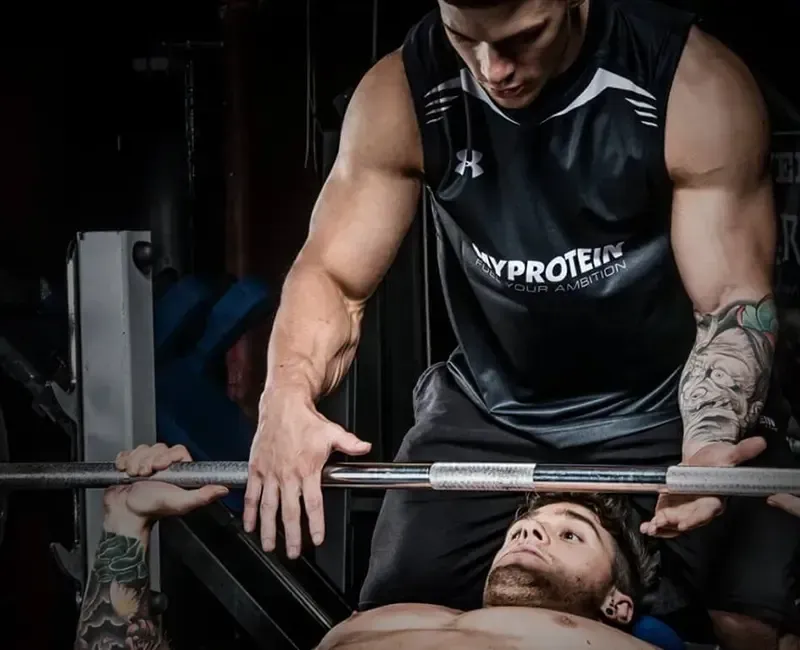





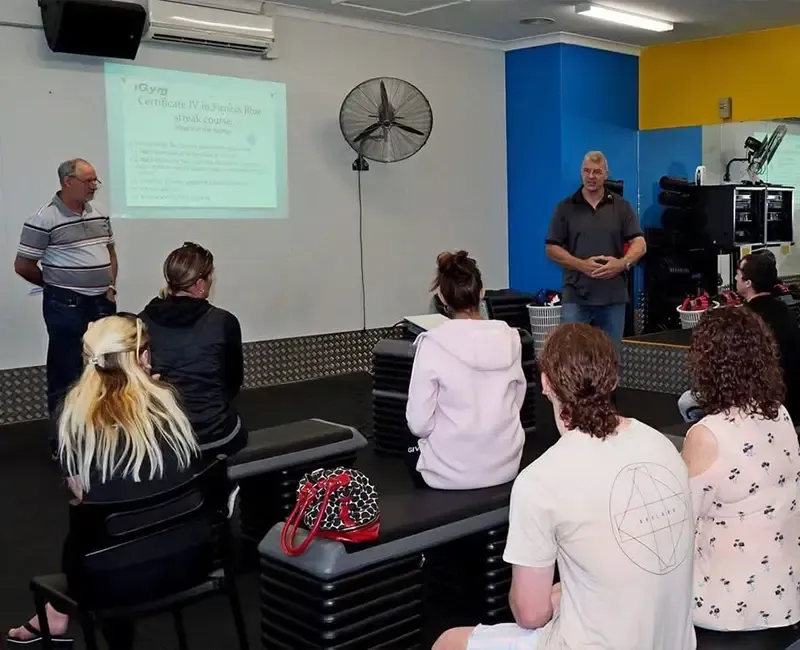
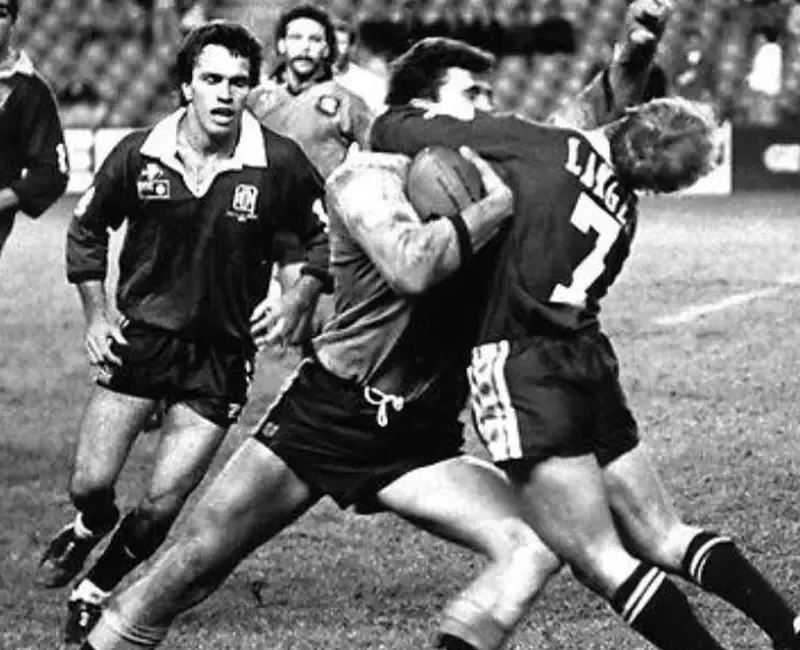

© 2025 Mark McGaw Institute of Sports Science All rights reserved.
ABN # 81 072 086 063
RTO # 91205
Privacy | Terms & Conditions
Marketing by LiveSwitch











